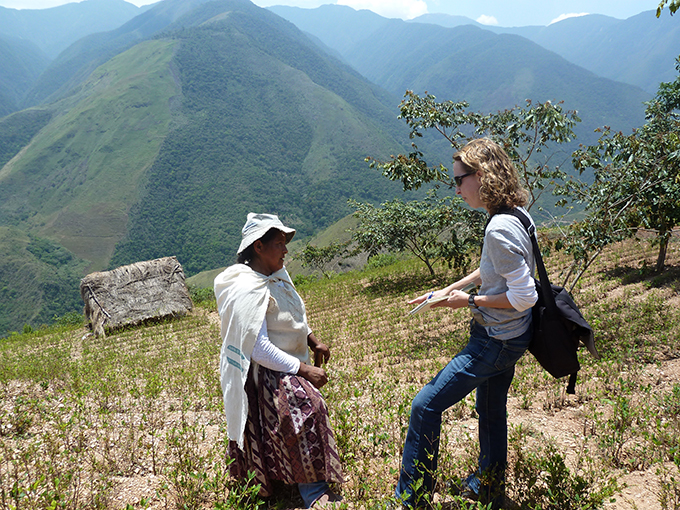
It was a warm summer day in Kazakhstan. I was having a pretty tough time. Mid-thesis crisis. Emotionally demanding fieldwork in Central Asia, a break-up, and just the feeling that I didn’t succeed with my fieldwork, or my PhD. I was supposed to do productive fieldwork in the political sphere of Kazakhstan. Instead I felt that I spent a lot of time feeling frustrated about my interviews and my work.
I didn’t want to go on. I was tired of academia; tired of the advice we had received at my university. All the seminars were about how to build an academic career – but what if you don’t want that? What if you want to work in the field? I didn’t want to go back to my desk and my PhD. I felt that I was a failure. I felt that I wasn’t a good academic.
As a go-around solution I panicked, which turned out not to work. Then, my partner at the time gave me the best advice I received that year: to apply for an un-paid internship, relevant to my studies and expertise. He could see that I was burnt out, and that I didn’t know where I was going. I thought “what the heck”, and I decided to apply. I sent off a few applications to some diplomatic representations in Central Asia that use graduate students as unpaid slaves. I ended up getting two offers, hooray! I accepted the most convenient one. I was to work in a real diplomatic representation!
A month later I flew to Tajikistan, a beautiful, poor, and wild Central Asian state. My university in Australia – somehow, and thank God – supported me, and decided to continue my scholarship, as I managed to convince them of the relevance of the internship. And it did in fact turn out to be invaluable for my PhD.
Working in the field instantly felt like the fix, which I had yearned for. I was able to get my hands on things. But interestingly, I felt how my research skills from my PhD applied exactly to the tasks we were doing – and how my knowledge on Central Asia really paid off here.
The first weeks were chaotic – the country went through some violent clashes in the capital, and the political situation in the country shifted quite dramatically as we watched. Later, we had a big earthquake, and one day my flat also went on fire… Plus the repeated food poisonings. But I also saw also the unbelievable beauty of Tajikistan, and the warmth of the people there. It was a pretty crazy time, and it was definitely chaotic, but life still had much more structure than my “PhD life” previously had.
I worked 9-5 every day at the diplomatic representation. It was my first structured life in years. Getting up early, doing the job. Guilt-free evenings (well, except for that PhD…). I loved it. The imposed structure of the day made me realise that I work better in the mornings and afternoons – before, I had spent days struggling to get my PhD work done in the late afternoon and evenings, battling procrastination and daily chores. Now, I found my personal work rhythm. But more importantly, I got to work in the field, so to say.
I found out that my skills were applicable. My colleagues highly appreciated my capacities and input, and I absolutely loved using my research skills and my expertise a place where they were needed, a place where they came of immediate use. And most of all I enjoyed feeling that I made a difference. One day my boss, a career diplomat with years of experience in Central Asia, told me: “Mia, you’re the best Central Asia analyst I have ever worked with.” That was kind of a turning point for me. It turned out I was not the failed student I thought I was!
After three months in Tajikistan, my contract ended and I had to fly back to Kazakhstan to commence my second round of fieldwork, getting the final interviews done. Unlike the previous round of fieldwork I had there, I got up in the morning, did interviews and transcribed them as soon as I got home. If I didn’t have interviews, I worked from 9-5 on my thesis, and got home and had a guilt-free evening, maybe a night out with friends. I managed to get more than thirty interviews and meetings done in a bit more than a month, in two different cities. And I had fun doing it.
Why this sudden efficiency?
First of all, I had learnt my work rhythm. I had also through my internship in Tajikistan acquired some solid networks in my field, which meant that doors that were previously closed to me for my interviews now were open. But most of all I had realised the importance and application of my PhD. That my work was important and that it did matter. I was eager to write my PhD and do it well, because I had gained the contacts and the experience in the field that means that I (hopefully) will be able to get a job, and apply my skills where I feel they can be of use.
Author Bio: Mia Tarp Hansen is a Danish third year PhD candidate in political science, enrolled at La Trobe University in Melbourne.
